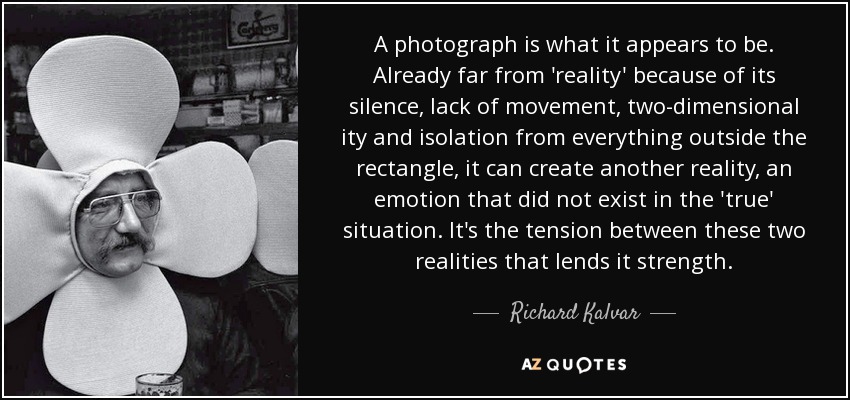Photograph Quotes - Page 37
-
-
 A photograph is what it appears to be. Already far from 'reality' because of its silence, lack of movement, two-dimensional ity and isolation from everything outside the rectangle, it can create another reality, an emotion that did not exist in the 'true' situation. It's the tension between these two realities that lends it strength.
A photograph is what it appears to be. Already far from 'reality' because of its silence, lack of movement, two-dimensional ity and isolation from everything outside the rectangle, it can create another reality, an emotion that did not exist in the 'true' situation. It's the tension between these two realities that lends it strength.
-
You May Also Like Quotes On:









